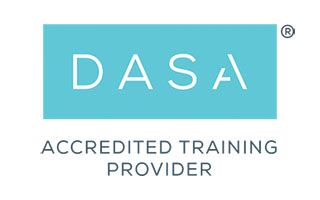title
Please take a moment to fill out this form. We will get back to you as soon as possible.
All fields marked with an asterisk (*) are mandatory.
DASA DevOps Professional Enable And Scale
Course Description
Overview
This two-day course equips participants with the skills and knowledge to lead DevOps teams effectively, focusing on practical understanding and application in real-world scenarios. Attendees will learn how to foster a collaborative environment, encourage innovation, and drive the team towards optimal performance.The DASA DevOps Professional – Enable and Scale certification is designed to provide the core education necessary to put DevOps into practice. With the help of DevOps theory, pragmatic examples and exercises, and interactive group discussions, the course will help you understand how to apply the necessary skills to practice DevOps.
Objectives
- Explain the importance of DevOps culture and the aspects that can influence it.
- Explain why courage, team building, leadership, and continuous improvement are required in a DevOps environment.
- Explain why courage is essential to enable trust, honesty, and experimentation.
- Identify and evaluate different types of behavior in a DevOps environment.
- Recognize the signals indicating impediments and/or team dysfunctions.
- Describe how to form good DevOps teams.
- List the effects of happiness and motivation on team performance.
- Assess the maturity of DevOps teams.
- Identify how leaders encourage feedback and transparency.
- Discuss the factors that leaders can influence to build trust.
- Explain how and why leaders promote a “Safe to fail” environment.
- Analyze value streams to improve throughput and flow.
- Facilitate the tools for continuous improvement: structured problem-solving workshops, Story Mapping sessions, and retrospectives.
Audience
- Individuals involved in IT development, IT operations, or IT service management
- Individuals whose role are affected by DevOps and continuous delivery, such as:
- DevOps engineers
- Product owners
- Integration specialists
- Operations managers
- Incident and change managers
- System administrators
- Network administrators
- Business managers
- Automation architects
- Enterprise architects
- Testers
Prerequisites
-
Required: DASA DevOps Fundamentals certificate
Beneficial: Basic familiarity with Agile, Scrum, Lean, and ITSM principles
Topics
- Let’s Get to Know Each Other
- Course Overview
- Course Objectives
- Course Agenda
- Course Book
- Group Discussions
- Exam
- Design Teams
- Build Teams
- Governance
- Build Culture
- Create Purpose
- Be a Servant Leader
- Focus on Success
- Build Courage
- Think Different
- Different Aspects of Value
- Stakeholder Management
- Combining Lean Startup and DevOps
- The Power of Story Mapping
- Build Flow
- Types of Continuous Improvement
- Continuous Improvement Tools
Related Courses
-
DevOps Tools With Git And Jenkins
DEVO-305- Duration: 3
- Delivery Format: Classroom Training, Online Training
- Price: 2,100.00 USD
-
DASA DevOps Professional Specify and Verify
DEVO-330- Duration: 2
- Delivery Format: Classroom Training, Online Training
- Price: 1,550.00 USD
Self-Paced Training Info
Learn at your own pace with anytime, anywhere training
- Same in-demand topics as instructor-led public and private classes.
- Standalone learning or supplemental reinforcement.
- e-Learning content varies by course and technology.
- View the Self-Paced version of this outline and what is included in the SPVC course.
- Learn more about e-Learning
Course Added To Shopping Cart
bla
bla
bla
bla
bla
bla
Self-Paced Training Terms & Conditions
Exam Terms & Conditions
Sorry, there are no classes that meet your criteria.
Please contact us to schedule a class.

STOP! Before You Leave
Save 0% on this course!
Take advantage of our online-only offer & save 0% on any course !
Promo Code skip0 will be applied to your registration
Purchase Information
title
Please take a moment to fill out this form. We will get back to you as soon as possible.
All fields marked with an asterisk (*) are mandatory.










